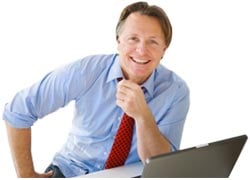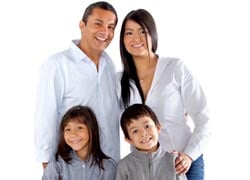
Government Debt Relief
If you're a resident of Arizona who is overwhelmed with credit card debts and looking for relief, you may be searching for federal or state-sponsored programs from the government that offer some type of consumer debt relief to help you pay off your debts. Unfortunately, unlike the bailouts that the government gave banks and other financial institutions, it does not provide debt relief grants or aid that are designed to help consumers pay off debts.
But the good news is, if you are struggling with high-interest credit card debts as well as other types of unsecured debts (such as medical bills, utilities, or department store charges), you certainly have options when it comes to finding debt relief - including debt consolidation, debt settlement, debt consolidation loans, or even bankruptcy. Both debt consolidation and debt settlement have become, for many consumers, popular alternatives to bankruptcy - which, typically, has a more damaging and longer lasting impact on your personal credit.
To learn more about your debt relief options, list debt now and answer a few, simple questions to get your free debt relief analysis and savings estimate - at no charge to you.
How Consolidation Can Help You
Debt consolidation, or a debt management plan (DMP), gives individuals and families the opportunity to combine, or consolidate, high-interest credit card and other unsecured debts into one, more structured, and more manageable payment plan made to a credit counseling agency. Credit counseling agencies, in turn, distribute those funds to credit card companies in the debt management plan.
When you enroll in a debt consolidation program, credit counselors will, initially, review your finances, debt amount, and sources of income. Then, credit counselors will typically create a strategy to help reduce your debts and submit proposals - on your behalf - to creditors asking for a reduction in interest rates, or the elimination of any late fees and other penalties. Creditors that agree to extend more favorable payment terms are placed into the debt management plan. For those creditors who do not agree to provide the benefits of debt relief, consumers are still obligated to live up to the terms of their original agreements.
The goal of debt consolidation is to help you direct more of your funds towards paying the principal of your debts versus simply just paying the interest. If you want to learn how debt consolidation through credit counseling could potentially help you reduce your debts, answer a few, simple questions to request a free debt relief analysis and savings estimate.
Benefits of Debt Settlement
If you have the type of debt that qualifies for debt settlement, you can try to negotiate with creditors for a significantly reduced amount of what you originally owe. For many consumers, debt settlement or negotiation offers an honest and legal way to pay back their debts without declaring bankruptcy.
But there are potential risks: When you enroll in a debt settlement program, your credit score will typically decline because it usually involves "falling behind" on your payments in order to set aside funds that can be used to make a settlement offer (or what's also called a lump sum payment). In addition, as you fall behind in making payments, you can also face legal action for, essentially, defaulting on the terms of your credit card agreements. Finally, money saved via a debt settlement program is subject to federal taxes and this should be strongly considered.
Despite these factors, debt settlement still has become a popular debt relief options for many consumers who are experiencing financial hardship and feel they have no other alternative beyond bankruptcy -- which typically has a more damaging and longer lasting impact to one's credit rating.
Statewide Assistance
As noted earlier, Arizona, like many states governments, does not have any credit card relief programs or grants to help consumers pay off their credit card and unsecured debts. However, it does offer a variety of services that provide low-income families with basic necessities. On its official website, go to the Citizens Services page, which lists many of the services designed for people who need financial help, including assistance with food, employment, or housing. In addition, the U.S. Department of Housing and Urban Development has resources for the needy and guidance on how to keep their home and on preventing foreclosure. For more information on state-wide economic aid resources, click on this link.
"How Much Will I Save with Consolidation?"
The reasons why many consumers have found themselves in a position where they are unable to manage or even begin the act of paying off their credit card debts are varied and unique. For some, the loss or reduction of income has certainly played a part, while for others, it may have had to do with dealing with an unexpected personal crisis. As such, no one can say with certainty how much savings you could potentially have, every month, when you consolidate your debts. However, with debt consolidation, your savings typically depend on how much you originally owe, the current interest rates that you are paying, and any late fees or penalties.
The bottom line, if you want to start taking steps to resolve your debt situation, there is help. With the right debt relief program, you could be on your way to paying back your debts at a more manageable and predictable pace, or get back on the road to financial freedom. Start now by requesting your free debt relief analysis and savings estimate - it only takes minutes!























